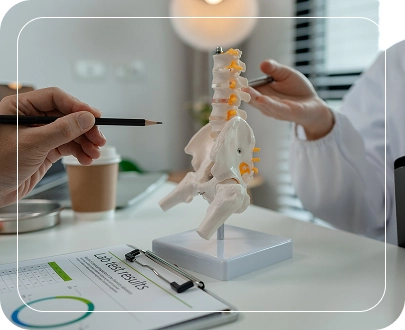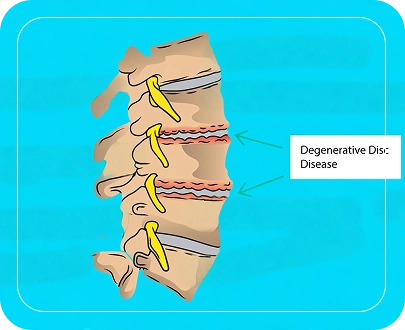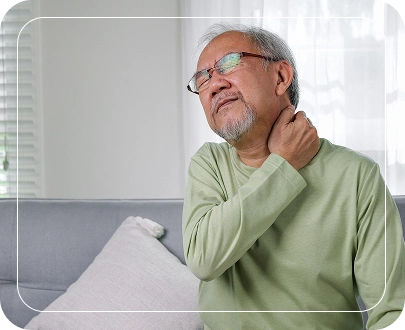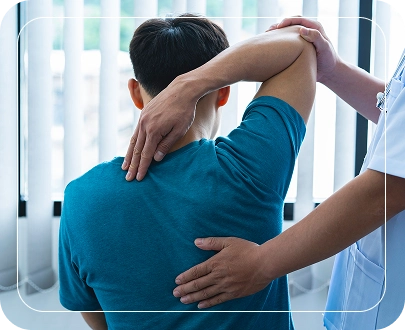Spine Degeneration Surgeon in Kolkata
Overview

Types of Spine Degeneration
-
Degenerative Disc Disease (DDD):
The spinal discs lose hydration, reducing their ability to absorb shock and affecting the cushioning between vertebrae.
-
Facet Joint Degeneration:
Wear and tear in the joints between vertebrae lead to stiffness and discomfort.
-
Spinal Stenosis:
Narrowing of the spinal canal, putting pressure on nerves.
-
Spondylolisthesis:
Vertebrae slip out of place due to degeneration.

Signs you need a Spine Degeneration



Stiffness and reduced flexibility

Stiffness and reduced flexibility

Radiating pain in the arms or legs that worsens with movement

Radiating pain in the arms or legs that worsens with movement

Numbness or tingling sensations in arms or legs

Numbness or tingling sensations in arms or legs

Muscle weakness

Muscle weakness

Sharp pain during certain activities

Sharp pain during certain activities
Book an appointment today
Causes & Risk Factors of Spine Degeneration
Several factors contribute to spine degeneration disease:
- Ageing and natural disc wear
- Genetic predisposition
- Sedentary lifestyle or lack of movement
- Poor posture over time
- Repetitive spinal stress or strain
- Heavy lifting or incorrect lifting techniques
- Previous spinal injuries or trauma
- Smoking (reduces disc nutrition)

Diagnosis of Spine Degeneration

Physical examination

Physical examination







Movement assessments

Movement assessments

Nerve function tests to evaluate nerve compression

Nerve function tests to evaluate nerve compression
Spine Degeneration Treatments
Along with advanced and precise spine degeneration surgery in kolkata, such as discectomy, spinal fusion, or artificial disc replacement, Dr Rohit Mishra specialises in
- Physiotherapy
- Pain management
- Medication
- Lifestyle modifications
- Minimally invasive procedures like Epidural injections, nerve blocks


Preventive Measures with Spine Degeneration
- Maintain a healthy weight to reduce spinal stress.
- Exercise regularly to strengthen core muscles.
- Use proper weight-lifting techniques.
- Practice good posture while sitting and standing.
- Avoid smoking, as it affects disc health.
- Stay hydrated to keep spinal discs nourished.

